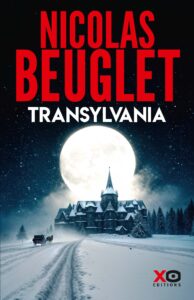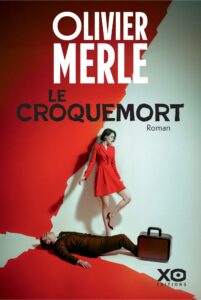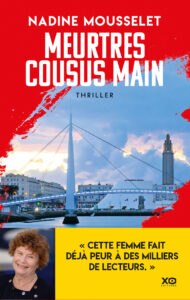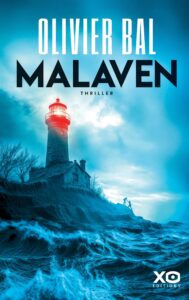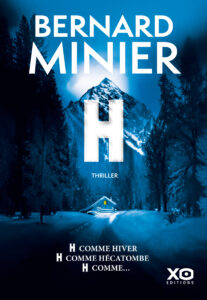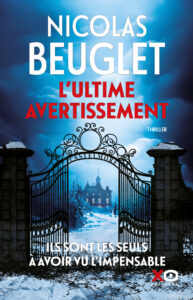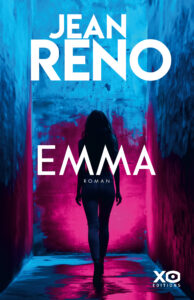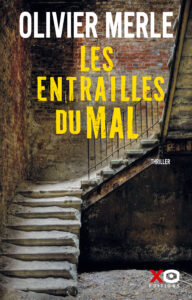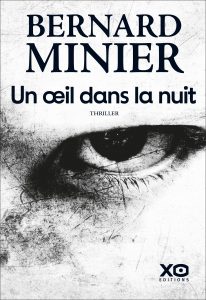I started writing novels in 2000, when I was 22 years old. For seven years, I was employed at the Shanghai Post, and I was writing while working. In 2007, I became a full-time writer. My books are written in different styles. In my suspense novels, I have covered all kind of styles: supernatural crime, thrillers, going through the Gothic genre. I have also written a lot of short stories and highly literary texts. Many of my books have been adapted into movies and television series. In recent years, I have returned to more historical and literature fields.
Your novel begins with the strange death of a high school girl, soon followed by that of Shen Ming, a teacher suspected of having killed her. And, years later, a strange little boy appears, Si Wang… What is so special about him?
Imagine that you meet a mysterious boy who knows all the adult world, and whose knowledge exceeds that of a great intellectual. Even more surprising: his presence is reminiscent of an event that occurred before his birth that only you and someone already dead know about. The child tells you he was this person in his previous life because he was reincarnated keeping the whole memories of the deceased. This boy is Si Wang, part angel and part daemon. He could be your best friend or your most terrible enemy! As soon as he arrives in the world, he thinks of accomplishing only one thing: revenge. He will look for all the people he has known in his previous life in order to shatter their lives, change their destiny and even to completely destroy their existence and their family…
Why this title, The River of Oblivion?
One evening in June 2012, I was out shopping with my wife, and a question arose in my mind: what does a child carry in his heart? Could it hold unimaginable secrets for an adult? Things that go beyond the life experience from a childhood, or from another space-time. When a child remains silent, could he not be immersed in his memories of an earlier life? It is said in China that after death, a human being must go through the Gate of Ghosts, the path of the Yellow Springs and just before reaching the palace of the afterlife, by the River of Oblivion. After crossing the River of Oblivion by the bridge spanning the tumultuous waters, he is ready to reincarnate into the womb of a woman…
Does everyone succeed?
Indeed not. At the entrance of the bridge, an old woman named MengPo, sits, a bowl of soup in her hand. If you drink this soup you can cross the river and forget. Otherwise, it’s a different story … and that’s the very idea of my novel: the fate of someone who, having not swallowed MengPo soup, comes into the world with the suffering and the regret of a previous life, its love and hate, as well as the memory of a unsolved crime, of which he was the victim without having been able to see the face of his assassin at the time of his death …
As an individual, what does reincarnation represent for you?
I think we all wonder: Is there something else after death? When I was in my third year of primary school, I read Pu Songlin’s Strange Tales, and I had no doubt about the veracity of the stories: after death, one reincarnates, and the big bad guys will all suffer various punishments… When I reached middle school, Marxist materialism finally convinced me that “transmigration” was complete nonsense. Then, I got passionate about all the answers given by the different religions. Those of Buddhism, in particular, that evoke the six realms of samsara: the paradise, the human world, the demons, the animals, the hungry ghost and hell. I also have studied a lot The Tibetan Book of Living and Dying, the Bible and the last Judgment, the Qu’ran and the promise of heaven and eternal life – if one has been a good believer and that has done good. In fact, of all beliefs, there is may be only Taoism that values the life and seeks longevity, while considering that the world of ghosts is parallel to ours – yourself, have you ever encountered a ghost?
Your novel oscillates constantly between realism and the supernatural. Do you like when people describe you as the “Chinese Stephen King “?
Stephen King is arguably the author that has had the greatest impact on me. His influence is not limited to intrigue and style, but also, and above all, to the values expressed in his various works: hope in The Shawshank redemption, equality and freedom in It, salvation in The Green Mile. His style remains simple, never pretentious. It is a man true to himself, who does not forget simple people. He is critical to discrimination and injustice in Western society and as well as of racism or sexism.
Your book also introduces us to a Chinese society that, in the space of twenty years has changed enormously. What can you tell us about today’s China?
China is living a “great era” never before known throughout its history. We can go so far as to say “Great era”, unique in the history of the human species. We can see there a most extreme ambition for the future, but also the deepest gap between the rich and the poor, the most insatiable greed, the most unbearable oppression, the most debauched and shameless school directors, the most innocent but unhappy children, the most delicious and the most toxic food, the most abused body of men or women, the most devouring of flesh and soul chains of production… I would like to document in detail this “great era”. In this novel, I describe some of its aspects through the fugitive life of Shen Ming and the delicate youth of Si Wang. I think that this “Great era” will also be that of Chinese literature. For us, Chinese writers, it is an unheard and unexpected opportunity.
At the same time, The River of Oblivion has many Western cultural references. Do they play an important part in your work as a writer?
The influence of Western culture in contemporary Chinese literature is much more important than we think. My literary creation testifies to it with force. I like to mix different cultural territories in my work. In the second volume of my novel, The Guardians of the Tombstone, I evoke the treaty of Versailles in 1919 and I tell a story that unfolds entirely in France! In general, I think that, whatever the cultural context is, the different forms of human thought will join in. All over the world, people share emotions and identical feelings. Any attempt to build an insurmountable wall between men is doomed to fail. Nationalism, populism and rampant extremism are currently thorny issues that Europe, America and the world have to face. China seems to be free of these problems.
For now… The day will come when they will gain importance.
Are you, from this point of view, an optimistic author?
I am convinced that, if we want to eliminate hatred and hostilities between different cultures, literature will have a determining role to play.



